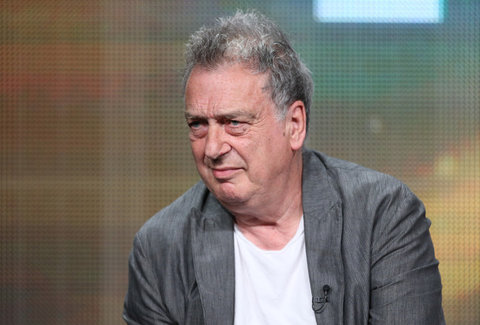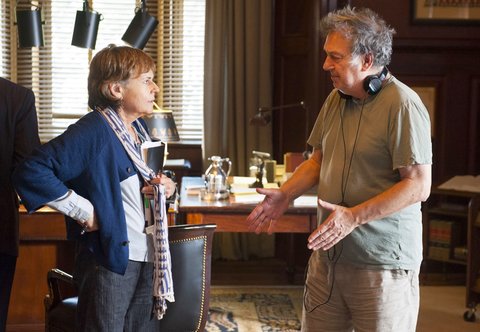The Light from the TV Shows: A Chat with Stephen Frears (“Muhammad Ali’s Greatest Fight”)
Director Stephen Frears has done so much notable work for the cinema that it’s sometimes easy to forget that he’s more than capable of dipping his toe into the world of television on occasion as well. His latest effort behind the camera, “Muhammad Ali’s Greatest Fight,” falls somewhere between the two mediums: the HBO Films production is making its TV debut on – where else? – HBO this Saturday, but it was actually screened in Cannes back in August, along with its small-screen brethren, “Behind the Candelabra.”
During this summer’s TCA press tour, I was fortunate enough to sit down with Frears and discuss his work on “Muhammad Ali’s Greatest Fight,” including how he came to join the project and what he knew about Ali’s Supreme Court struggles prior to signing on, but he was also kind of enough to chat about a number of his other films. Although the conversation occasionally drifted in unanticipated directions, the sidebar excursions proved just as enjoyable and entertaining as anything that I’d gone in actually planning to bring up.

Bullz-Eye: What was your familiarity with the Muhammad Ali story going into this project?
Stephen Frears: Well, it was both a lot and nothing. In other words… I remember Ali fighting (Sonny) Liston, so that’s how old I am. [Laughs.] I don’t remember the Olympics. But then I remember the trouble in America, of course. And then he sort of disappeared, and I couldn’t tell you what happened until he fought in Zaire and he became a sort of comedian. He became very, very funny. So this bit was like a sort of black hole.
BE: How did you come aboard as director?
SF: I ran into Shawn (Slovo) at a party. I said, “What are you doing?” She said, “I’m writing something very, very interesting.” [Shrugs, then laughs.] So I snooped around and found that it was very interesting. Simple as that.

BE: Had you known her prior to that?
SF: I knew her to gossip to her, to say “hello” and talk to her at that party. [Laughs.] But now I know her much better.
BE: Was the script more or less filmed as written, or did you have to do some tweaking to make it work?
SF: I think there was a certain amount. I like to have the writer on set, because in a sense you’re writing all the time, but that’s just to make scenes clearer, things you learn as you go along. It must at some point have sorted itself out enough for us to say, “Right, let’s make this.” I can’t recall, there might’ve been a couple of drafts that we went through before we made it. And then we were writing the whole time on set, just to make things clearer.
BE: It’s interesting that the film focuses on a key moment in Ali’s career, yet it does so without ever portraying Ali. His presence is simply via archival footage. Was that always the plan?
SF: Yes, that was always planned, and the truth is that it was a great relief. The idea of casting Ali didn’t bear thinking about, so I was really pleased by that. But the interesting thing about archival footage is that people never quite say what you want them to say. [Laughs.] They don’t say what you’d like. But eventually we started finding a way how to deal with it. So it was very, very interesting.
You can follow us on Twitter and Facebook for content updates. Also, sign up for our email list for weekly updates and check us out on Google+ as well.
Posted in: Entertainment, Interviews, Movies, News, Television
Tags: Christopher Hampton, Christopher Plummer, Colm Meaney, Dangerous Liaisons, Daniel Day Lewis, Donald Westlake, Frank Langella, Gary Oldman, Harold Ramis, HBO, High Fidelity, Jim Thompson, John Cusack, John Hurt, Kenneth Branagh, Martin Scorsese, Muhammad Ali, Muhammad Ali's Greatest Fight, My Beautiful Laundrette, Nick Hornby, Roddy Doyle, Selma, Shawn Slovo, Skip Tracer, Stephen Dorff, Stephen Frears, Terence Stamp, The Grifters, The Hit, The Light from the TV Shows, The Queen, The Snapper, The Van, Tim Bevan, Tim Roth, Will Harris










